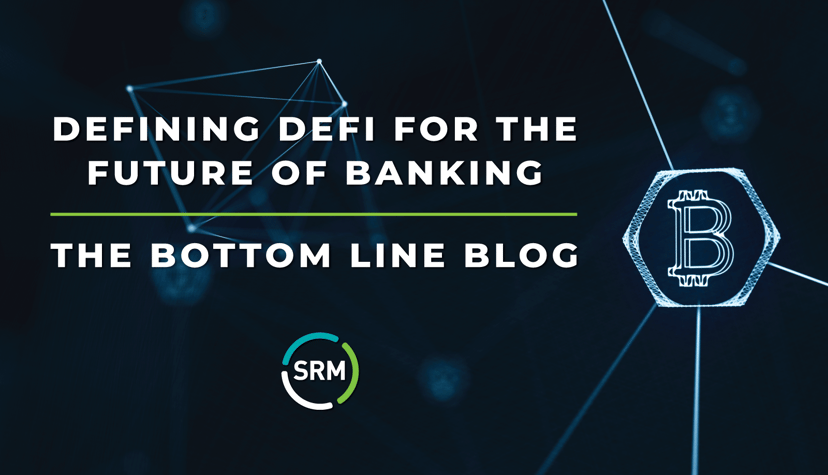
Traditional financial institutions are facing a new wave of crypto-enabled payments disruptions, and many don’t see it coming. Even so, lending as we know it is about to change.
In a recent post, I stressed the importance of banks and credit unions preparing for rapidly emerging financial technologies like CBDCs (central bank digital currencies) and DeFi. This post will take a closer look at what DeFi means for banking as we know it, and encompasses borrowing, lending, investing, payments, and digital wallets.
DeFi is a blockchain-based form of finance that does not rely on central financial intermediaries such as brokerages, exchanges, or banks to offer traditional financial instruments. Instead, it utilizes smart contracts on blockchains.
The DeFi category has grown exponentially from roughly $700 million dollars in early 2020 to more than $65 billion today - without the involvement of a single bank.
If traditional-minded lenders don’t hear sirens in the distance, perhaps they should.
DeFi: The Uber to Your Taxi
Traction in the DeFi space is the result of thousands of creative people working together in an open-source environment focused on providing an alternative to legacy financial services models. Through emerging tools like blockchain-powered smart contracts, borrowers and lenders can be matched directly without a financial institution (FI) playing the intermediary, first gathering deposits before doling them out.
An analogy might be the way ride-sharing apps like Uber and Lyft connect drivers and passengers without the need for a taxi company as a middleman. Although there’s no major contender, yet, playing the Uber/Lyft role in DeFi, this could certainly change. The emergence of such disruptive rivals could pose a greater threat to existing banks and credit unions than the present-day scenario of countless small, nimble innovators testing various DeFi protocols.
And, yes, we’ve heard the arguments against widespread usage due to regulatory complexity underpinning financial services, but this is why the Uber/Lyft analogy is so powerful. Taxi and car services are one of the few industries with regulatory barriers approaching those of banking. These barriers certainly didn’t prevent mass disruption due to the disruptors’ following Admiral Grace Hopper’s “ask for forgiveness, not permission” approach. DeFi technology has fewer limits because geographic borders don’t bind it. Any significant regulation would require coordinated worldwide effort to be effective.
A Pathway for the Underbanked
On the other hand, DeFi holds the potential to crack the code on a longstanding challenge - profitably serving more than 1.7 billion underbanked adults across the world (15 million in the US alone). Members of these segments often have limited branch access, “thin file” or inadequate credit scores, and may even lack verifiable identities. However, most of these consumers have mobile phones and access to DeFi solutions via the internet. Leveraging blockchain technology, DeFi could deliver financial alternatives to the underbanked in an efficient, transparent, and scalable manner.
One of the challenges FIs face in serving the underbanked is satisfying Know Your Customer/Client requirements. For this frequently transient population, mobile phones can serve as a powerful source of identity. Crowdsourcing through either open or community-based networks can be deployed, which will group risk and underwrite personal and small business loans. This, in turn, could help fund the next generation of entrepreneurship and homeownership. International remittance, a popular service to the underbanked, can be delivered at a far lower price point via mobile phones - eliminating the need for a costly physical distribution network.
DeFi can also efficiently establish proof of provenance and track chain-of-custody by transitioning property rights to the blockchain. For traditional lenders of consumer mortgages and auto loans, this means property and car title ownership transfers will become far less demanding and bureaucratic.
The Bottom Line
Banks and credit unions have the incumbent’s advantage of rolling out DeFi-powered services and modernizing their distribution models. The same could have been said of taxi companies confronted with ride-booking apps ten years ago. FIs are now up against a decentralized technology disruption on a similar scale. Will the banking industry learn from the past mistakes of the taxi industry? We’re about to find out.



